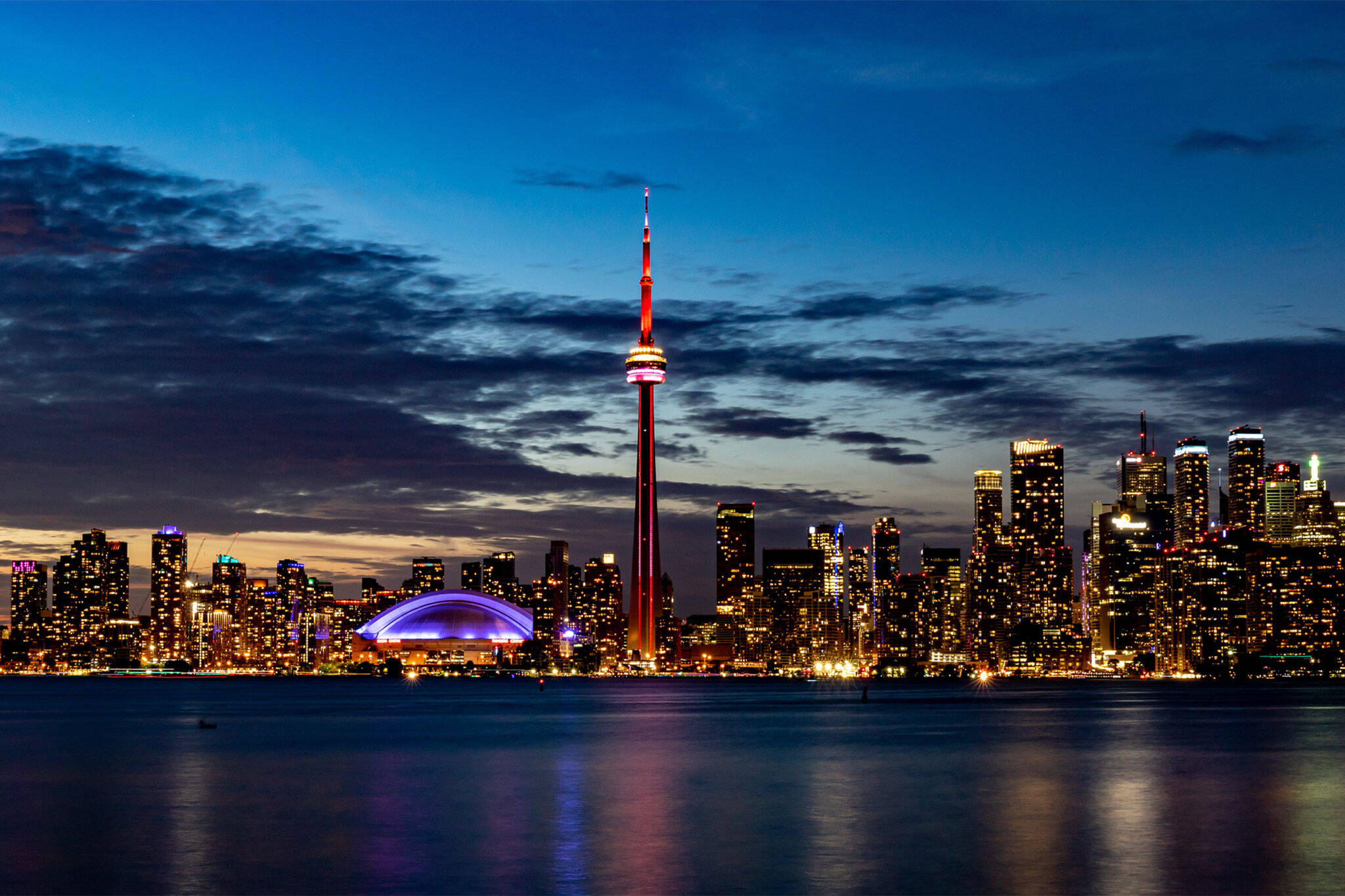
The history of no fun Toronto
It's no secret that the nickname "Toronto The Good" is more a reference to the city's puritan goody-two-shoes reputation than a reference to just our benevolence.
Even the New York Times once remarked we were most famous for being a bit boring.
We might not have it as bad as Vancouver (which is officially Canada's "No Fun City," according to Wikipedia), but we're certainly nowhere near as much of a party town as Montreal, which was once known as Sin City, before Las Vegas claimed that crown.
To be fair, much of Toronto's lameness comes from the fact the city happens to be located in Ontario.
The province's liquor laws are legendarily strict and often bizarre. Even before the sale of alcohol was prohibited in 1916, the only way to legally purchase booze previous to the ban was by prescription.
When prohibition was finally lifted in 1927, the authorities made sure that it was still quite difficult to buy a drink.
The early LCBO stores required that you first obtained a license to buy booze, and then after that still had to fill out a variety of paperwork to purchase your beverages of choice.
You could only buy one brand at a time, and also only one type of alcohol in one visit (not to mention quantities being severely restricted).
It wasn't until 1969 that you actually could walk into an LCBO and pick a bottle off the shelf, and another 25 years after that before self-serve liquor stores completely replaced the original counter service style.
Strangely, the privately run Beer Store still sticks to the counter service method at most of their stores, but at least you don't need to fill out a form anymore.
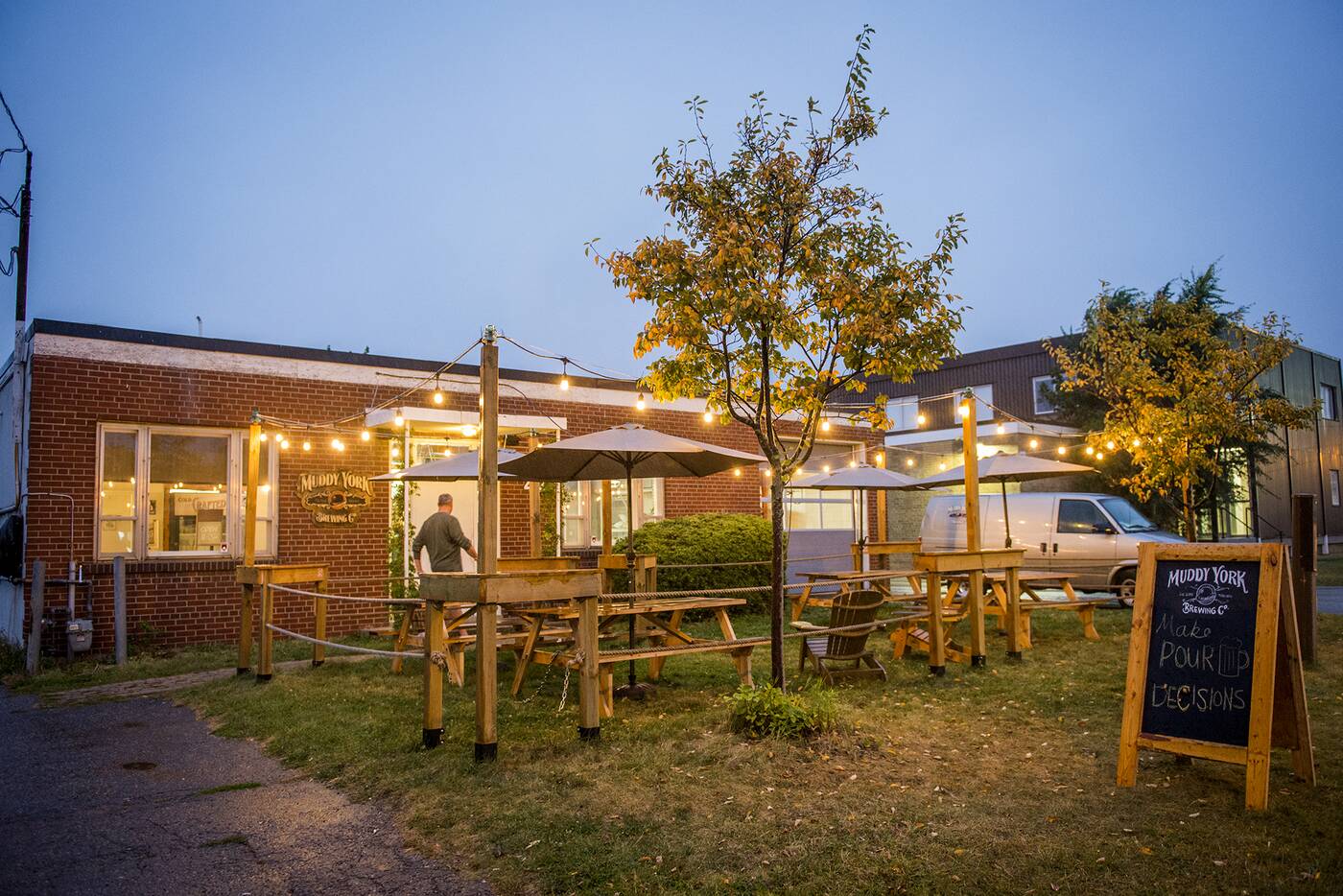
Craft breweries like Muddy York mean beer is now available for purchase on statutory holidays. Photo by Hector Vasquez.
In some parts of Toronto, prohibition lasted much longer, though. The neighbourhood now known as the Junction was still dry up until 1998, mostly thanks to the efforts of William Horace Temple (aka Temperance Bill) , a popular local politician and vocal opponent of the demon drink.
It wasn't until 2001 that the first beer was poured at a bar in the area. High Park didn't vote to allow bars and liquor stores until 1997, and St Clair West was also alcohol free until 1994.
The temperance movement also had an effect in areas of the city where booze was allowed to be sold: you couldn't drink at Massey Hall for the first century it was open.
Even in licensed bars, you couldn't buy anything but wine and beer until 1947, when Toronto's first cocktail lounge the Silver Rail obtained the first license (the Horseshoe Tavern followed shortly after).
Ontario's strange liquor laws continue to make Toronto feel more square than it should.
You can serve booze at 18 years of age, but you still need to be 19 to legally drink it, which continues to inspire many Torontonians to celebrate their 18th birthdays in Montreal.
The Ontario drinking age was once briefly 18, but raised to the current 19 in 1971 in response to concerns about high school students getting wasted.
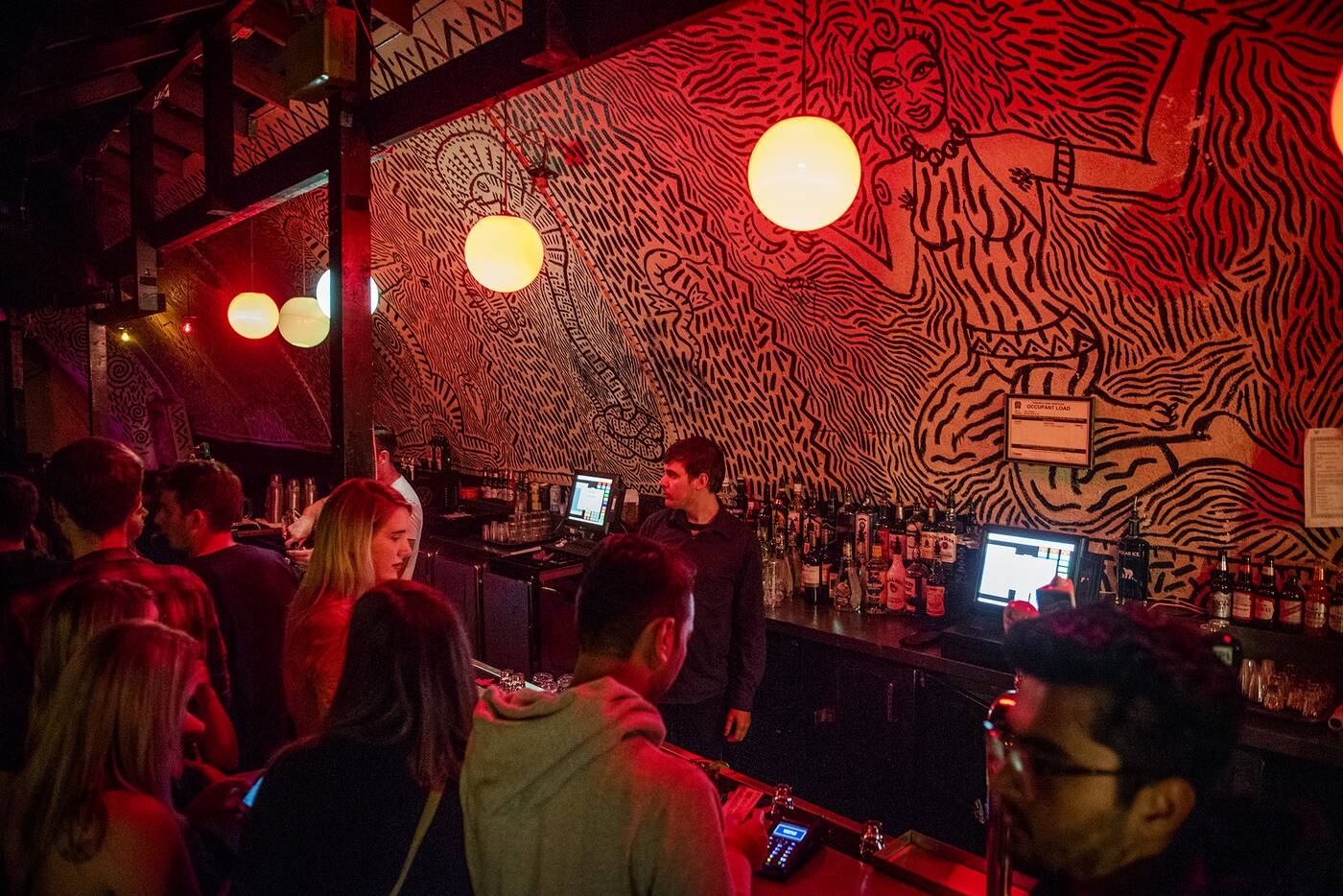
During non-pandemic times, drinking age is still 19 at Toronto bars. Photos by Hector Vasquez.
Since then, the final year of high school was cut, which has made things extra complicated for many first year college kids hoping to party with their new legal age classmates.
If you look in the freezer of most Toronto bars (pre-pandemic), you'll find some ancient frozen dinners to fulfill the legal requirement to serve food, since there is no legal middleground in Ontario between a nightclub (which are next to impossible to get approved in most of Toronto) and a restaurant.
This is also why so many bars have too many chairs and not enough dance floor space, otherwise you'll get fined for operating as a nightclub.
Before 1982, you couldn't drink a beer while watching the Blue Jays play at Exhibition Stadium, and it wasn't until a decade ago that the AGCO started seriously loosening the bizarrely strict regulations on serving alcohol at festivals.
Even then, few festivals have really taken advantage of their new freedoms, and most drinkers are still confined to caged off areas at outdoor events.
Similarly, since 2005 you can bring your own wine to some Ontario restaurants, but you rarely see this actually done, compared to Montreal where the practice is commonplace.
Last call in Ontario was finally moved from 1 a.m. to 2 a.m. in 1996, and since then many larger events and festivals have successfully applied for temporary 4 a.m. permits.
Beyond alcohol consumption, Toronto has a number of archaic anti-fun bylaws that are seemingly never enforced.
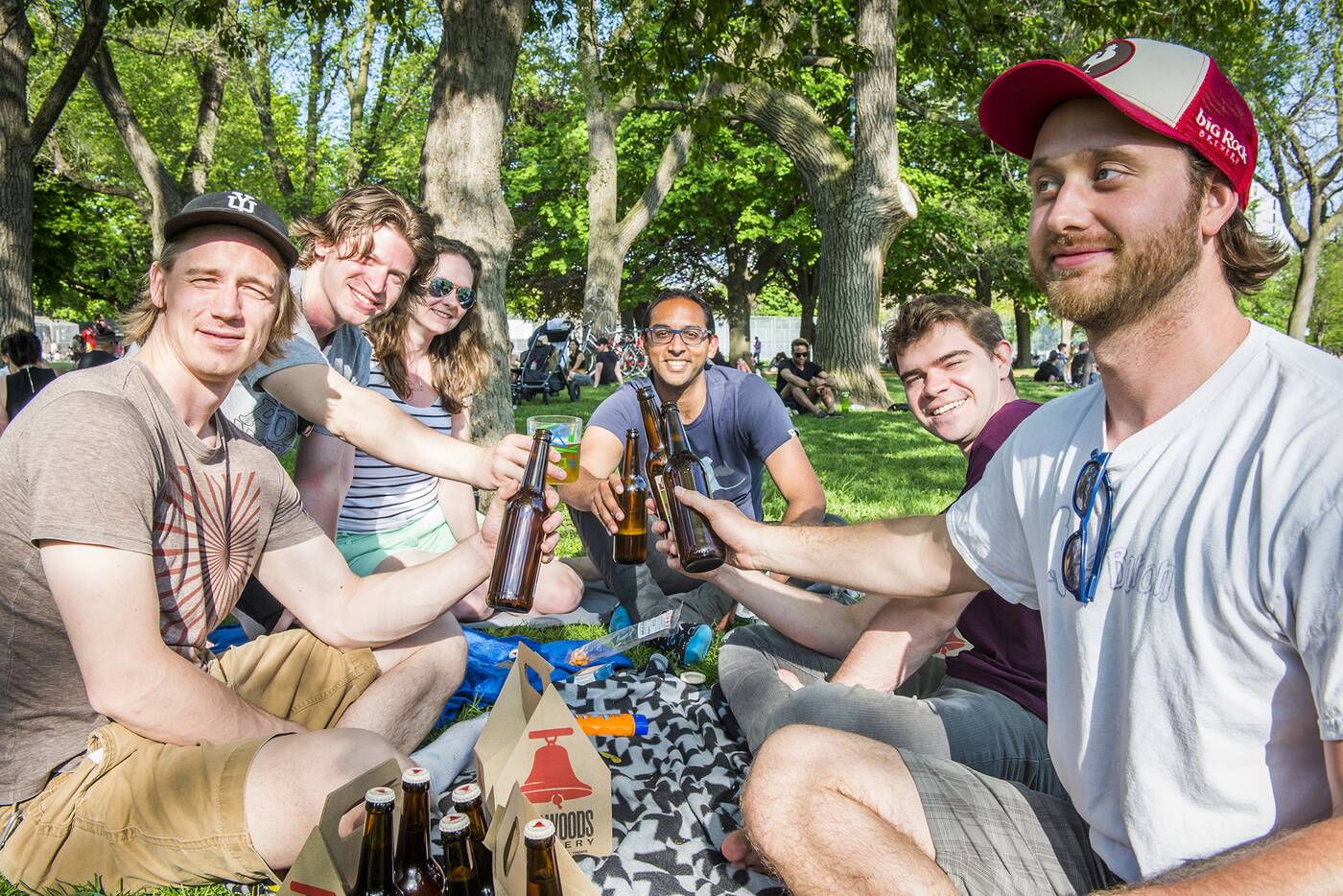
People still drink in public parks even though it's not technically allowed. Photo by Hector Vasquez.
For example, if the TTC actually refused to carry people wearing disguises, Halloween would be a logistical nightmare.
I'm also pretty sure no one has been charged with releasing more than 9 helium balloons in a day in recent memory. However, if someone is dragging a dead horse down Yonge street on a Sunday for kicks, hopefully they would still be at least fined.
You might think that a law restricting Toronto residents to two yard sales a year might be the kind of rule too absurd to actually enforce, but a number of years ago city council actually decided to ramp up their fight against illicit garage sales.
Similarly, while the amount of people drinking alcohol openly in some downtown parks might make it feel like it's legal, the laws are still being enforced, albeit selectively.
Unfortunately, in practice this tends to mean that the well-dressed and wealthy tend to get more of a pass than others.
Is it any surprise that Toronto also likes to regulate your fun when it comes to food?
The efforts to liberalize food truck restrictions have also not gone particularly smoothly. And even those that manage to get the green light to operate in the city have found they're not welcome in some neighbourhoods.
Feel like building a big pizza oven in your backyard and letting your neighbourhood use it? We've got rules against that too.
Sometimes Toronto's tendency to crack down on fun backfires in the best possible way. The infamous 1981 gay bathhouse raids not only failed to stop men from having sex with other men at them, but also became a major turning point for the gay rights movement in Toronto.
The annual Pride parade may just feel like a big party now, but it grew out of the protests against that homophobic crackdown.
Considering that history, the queer community was shocked in 2000 when Toronto police once again raided a bathhouse, and this time a women's event called Pussy Palace.
Sending clothed male officers into a space full of naked lesbians is equivalent to kicking a hornet's nest, and a judge later awarded the organizers a $350,000 settlement, imposed new sensitivity training, and a formal apology from the officers involved.
All of this isn't to say that you can't have fun in Toronto.
Besides, we wouldn't want to take the No Fun City title away from Vancouverites, who seem almost proud of the nickname.
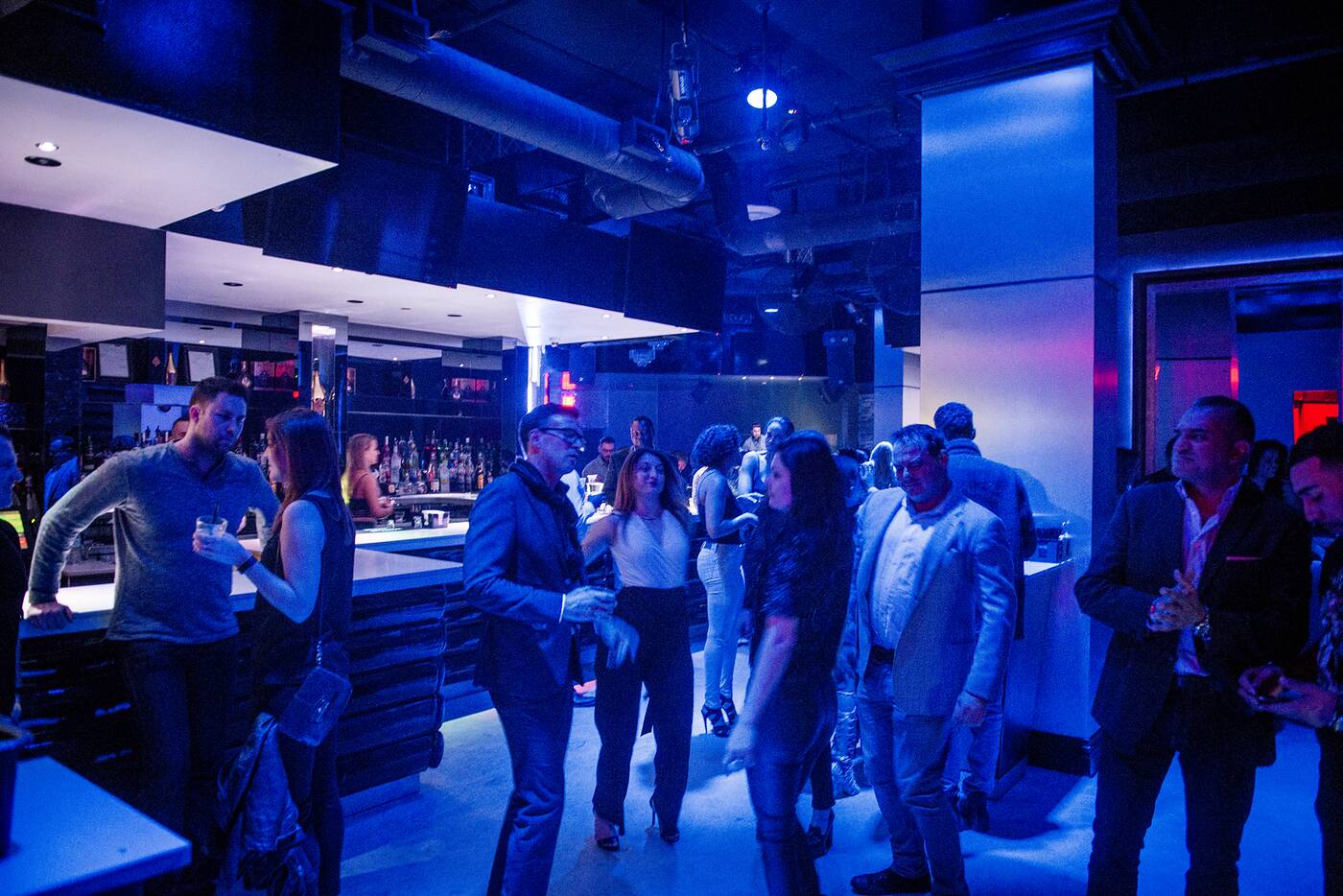
If a bar has too big a dance floor it's considered a nightclub. Photo by Hector Vasquez.
Still, even as our notoriously strict vice laws gradually relax, it often feels like you can't get away with much in Toronto without a NIMBY homeowner group going after you or city officials snarling you up in bureaucracy.
Some might argue that it's just a matter of property values. Berlin and Montreal are decadent bohemian paradises because the more affordable rents attract a different kind of person than the pricey real estate markets of Toronto or Vancouver.
And while New York was once the place to be for seedy after dark fun, most of that moved across the bridges once the mega-rich took over Manhattan.
Nevertheless, there are signs that Toronto is slowly starting to loosen up.
The growing number of local craft breweries makes it a lot easier to get some beer on long weekends when the LCBO and Beer Store are closed. And just last week the province made takeout and delivery alcohol sales at bars and restaurants permanent.
If the ongoing calls to loosen restrictions on things like new patios and drinking in parks becomes permanent post-pandemic, maybe we'll shake any further notion of no-fun Toronto for good.
Latest Videos
Latest Videos
Join the conversation Load comments







